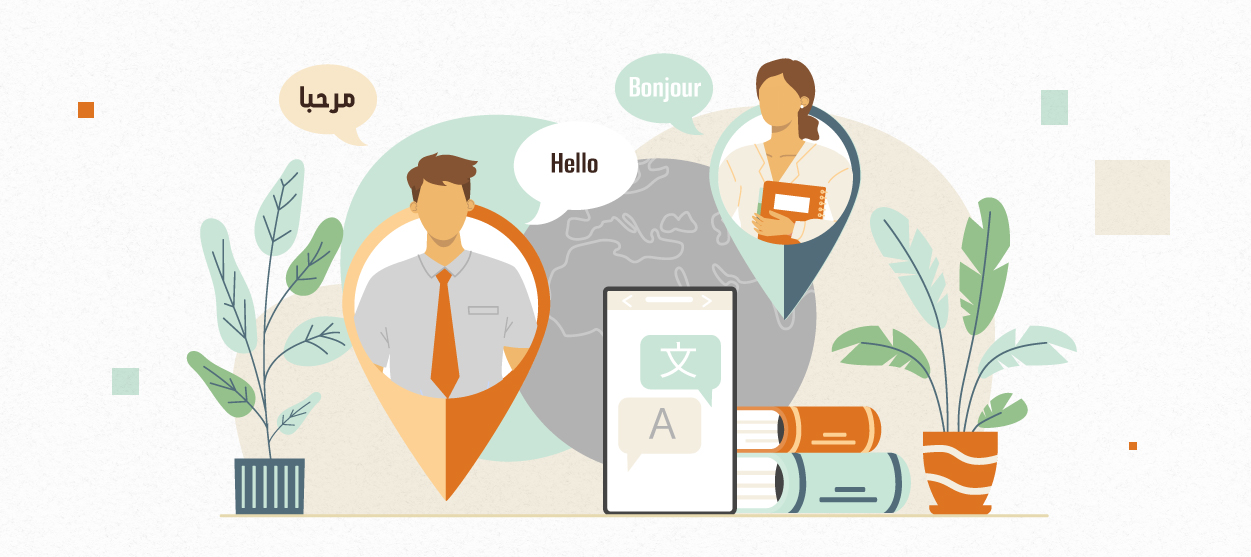Translation drives global communication

The world of words is growing
“When it comes to translation, apps and machines simply cannot achieve what human translators are able to. Professional translators interpret content not only in linguistic terms, but also in cultural contexts.”
Translation, like most other sectors, went through the pandemic and emerged looking very different from when it went in. However, like many others, it did not take a beating. On the contrary, it flourished.
While others stumbled or had to fight for survival, the translation industry, including agencies offering translation services in Dubai, not only proved resilient but truly emerged truly stronger on the other side. Most industry authorities predict continuing growth for the foreseeable future.
Several factors are fuelling this expansion, and increasing the value of polyglots, linguists and professional translators around the world. This is more than true for the cosmopolitan, cross-cultural business environment of the UAE.
1. Globalisation
The globalisation process, which has been progressing and intensifying for the last 20 years, was given fresh impetus during the last three. The internet connects communities around the world, and when millions of people moved online during the pandemic, it made businesses look more closely at delivery areas, geographical limitations, and serving customers online.
When service delivery models evolve from local to regional or international mode, language services play a key role in its fulfilment. Be it the interpretation of marketing materials, online interpretation of calls and documents, or the localisation of global content, the translation industry stands ready to step up and offer support.
2. Dubbing and subtitling
As the number of online and digital users continues to grow, so does the need to adapt information to suit audiences who live in various parts of the world and speak different languages. Videos are a sterling example of the growing demand for multi-lingual content, with some of the world’s largest broadcasters subtitling or dubbing successful programmes into multiple languages to broaden their appeal.
Inclusivity is another important factor at play. Last year, when TikTok introduced ‘auto captions’ to help users who are hearing-impaired, the feature was launched simultaneously in two languages, English and Japanese, with the promise of more.
3. Media localisation
Media localisation lies ahead of sub-titling and simple translation, when creative media content like radio and audio-visual shows are prepared for presentation to new audiences who speak other languages. With the astounding rise of video and podcast consumption, localisation services such as audio transcription and multilingual voiceovers are not just trends but steadily rising needs.
As with other forms of localisation, the task is about much more than language. While accuracy is a cornerstone, translation of media content also includes numerous cultural and technical elements.
4. Remote work
The past three years gave many businesses an abrupt introduction to remote work, but the translation industry was well ahead of the curve. Professional translators have worked remotely for many years, and the pandemic-induced crash course turned them into teachers for the rest of the world.
As a leading translation agency in Dubai, our translators have greater mastery of the way the world now works, not just from a language or communications perspective but also, in project planning and project management, customer service, increased collaboration, and greater efficiencies in remote delivery.
5. Gaming
Taking a video game to a global market is considered important for both its success and longevity. Gaming localisation is the most important part of its globalisation.
Translating a game is not as simple as writing the menus and instructions in a local language, but about adapting the whole game in concepts that make sense to host audiences, and in ways that they will respond to. It also includes subtitling, dubbing, and voice-overs and often, a new audio production. Localising a game often includes its marketing, to ensure that it is presented to a new audience in a relevant manner that is also culturally correct.
6. Medical translation
At the start of 2020, only a few specialist industries knew what a coronavirus was, how a spike protein behaved, or how a virus mutates. Translation played an enormous and essential role in bringing medical information to international audiences – rapidly and accurately. This took different guises between governments, healthcare providers, medical and pharmaceutical authorities, safety officials, and the public, often with multiple channels running concurrently.
The channels to share translations of ideas, data, research, and discoveries across the globe are now well established, and demand is not likely to drop off.
7. e-learning
While the pandemic made e-learning for schools a necessity, it also promoted the concept of learning anything from anywhere in the world, without having to be physically present in a particular location. This newfound flexibility also made companies look at translating their training material into different languages, to make it available and accessible around the globe.
As more people take up learning on their own pace and from any place, and the education and business sectors look at ways to strengthen online learning, translation serves as a relevant, convenient and effective bridge.
Our translation office in Dubai has been in the business for 16 years, and the demand for more traditional forms of translation – technical, business, financial and website content – also continues to grow, from English to Arabic and vice versa.
It is true that machines and translation apps can be accurate in translating from one language to another, but it equally true that the skills of a human translator simply cannot be replicated. Professional translators use their experience and expertise to translate content not only in linguistic terms, but also in cultural contexts. Human translation still reigns supreme.
When you plan to cross geographical boundaries, pay heed to the many challenges of communicating across borders.
Contact us to communicate in meaningful ways.







